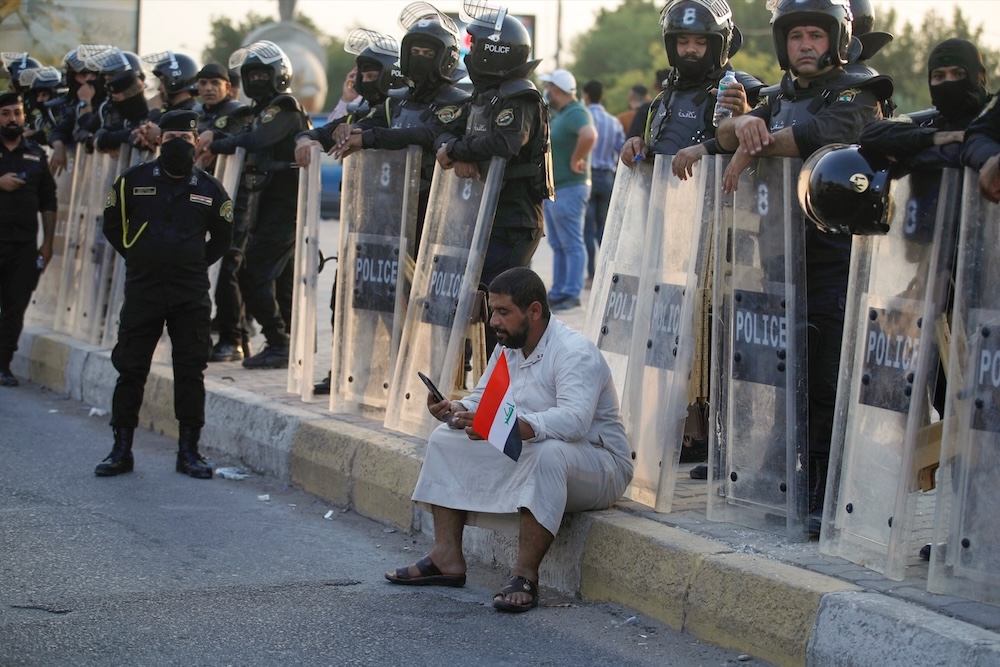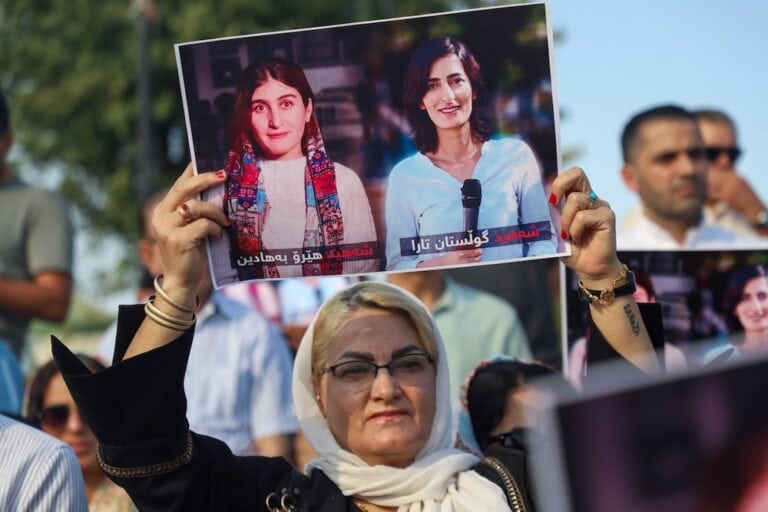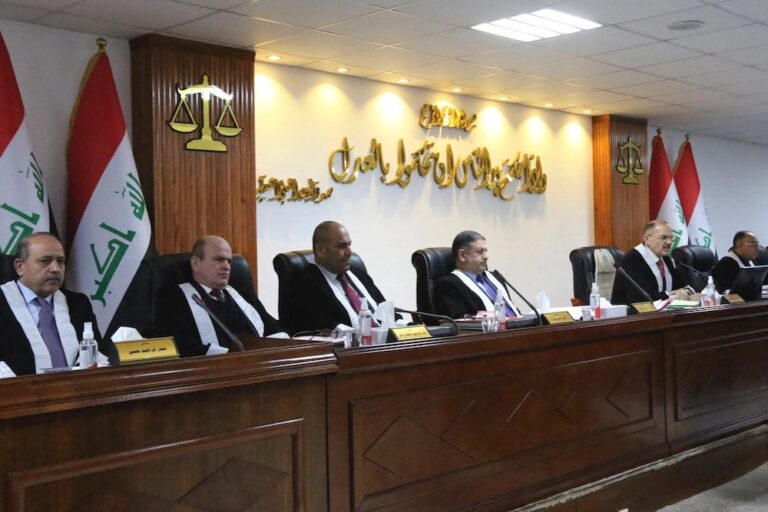Rights groups urge authorities to shut down the 'indecent content' reporting system, which has been weaponized to suppress free expression.
This statement was originally published on smex.org on 17 January 2025.
We, the undersigned human rights organisations, strongly condemn the Iraqi authorities’ continued use of the Balgh platform to monitor online speech and curtail freedom of expression. Launched two years ago under the pretext of combatting ‘indecent content’ on social media, the platform has been instrumentalised to facilitate arbitrary arrests, harassment, and prosecution of content creators and activists. Its adoption has engendered a pervasive climate of surveillance and self-censorship in Iraq, further exacerbating the country’s already deplorable human rights record. We, therefore, renew our calls for Iraqi authorities to shut down the platform and protect freedom of expression, both online and offline.
The Balgh platform (‘report’ in Arabic) was launched by the Iraqi Ministry of Interior in January 2023 to allow people to report social media content deemed ‘offensive’ or ‘indecent’. Shortly thereafter, the Ministry of Interior also established a committee to monitor such content across various social media platforms. Human rights organisations raised alarms, warning that authorities were likely to use it to suppress protected speech and instil ‘fear in bloggers criticising the constant political failures in Iraq’.
Since we voiced our concerns two years ago, the Balgh platform has continued to be weaponised for widespread public surveillance. The absence of regular updates on complaint statistics or prosecution outcomes leaves the full impact the platform has had on freedom of expression largely obscured. Initially, approximately 96,000 complaints were filed on the platform by February 2023, with 44 legal actions being taken by August 2023. By August 2024, the complaints reportedly surged to over 152,000, with continued arrests and criminal prosecutions occurring throughout 2023 and 2024. These prosecutions have mainly been brought under Article 403 of the Iraqi Penal Code, which criminalises material that ‘violates public integrity or decency’.
This provision has been widely criticised for conflicting with Article 19 of the International Covenant on Civil and Political Rights (ICCPR), to which Iraq is a state party. While protecting public morals is a permissible ground for restrictions under the ICCPR, such measures must also comply with the principles of legality, necessity and proportionality. Restrictions using vague and overly broad terms like ‘violating public integrity or decency’ fail to meet the legality requirement, enabling abuses and the suppression of dissent.
The UN Human Rights Committee, which interprets the ICCPR, has stated that ‘the concept of morals derives from many social, philosophical, and religious traditions,’ and limitations to protect morals must not rely solely on a single tradition. Moreover, the ICCPR protects even offensive or provocative expressions. The use of criminal laws to sanction speech acts – particularly with imprisonment – represents a grossly disproportionate response to allegedly ‘indecent’ content.
The Balgh platform further raises significant transparency and procedural rights concerns. Individuals often remain unaware of their status on the platform, unable to challenge their classification until arrest. Granting prosecutorial powers to the Interior Ministry for ‘indecent content’ raises serious risks of misuse, particularly against political opponents.
Beyond specific arrests and instances of prosecutions, the platform fosters a climate of self-censorship, discouraging people from freely expressing themselves online. It cultivates a surveillance culture where people monitor and report on one another. This undermines societal plurality, erodes trust, and suppresses individuality and diverse viewpoints.
According to INSM for Digital Rights in Iraq , the legal actions lodged over the last two years appear to have disproportionately targeted women, particularly those who challenge traditional societal norms, reflecting a broader regional trend of restricting women’s freedoms under the guise of morality and public order.
We urge the Iraqi government to immediately shut down the Balgh platform, drop all charges against targeted individuals and release those unjustly detained. Furthermore, all national legislation inconsistent with Iraq’s international human rights obligations, including Article 403 of the Penal Code, must be repealed. At a minimum, clear and transparent criteria for defining ‘indecent content’ must be established in accordance with international standards to mitigate arbitrary actions and abuses while reducing self-censorship and intimidation.



